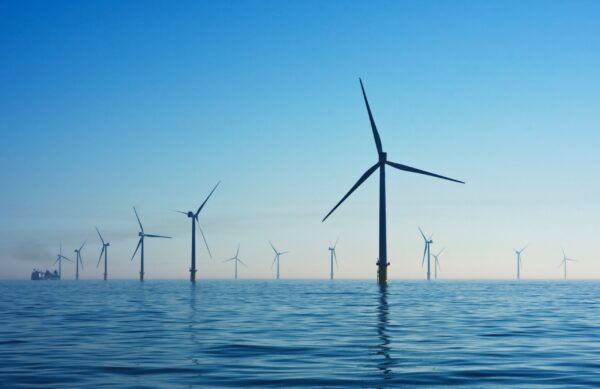A new report from the Offshore Renewable Energy (ORE) Catapult details how the latest advancements in technology can enable faster and more accurate data collection – leading to more informed decision making and the potential to reduce consenting times for offshore wind farms by as much as 40% – reducing costs and improving our knowledge of the marine environment.
The ORE Catapult report, Accelerating Offshore Wind: The Role of Innovation in Decision-Making and Faster Consenting, outlines how robotics, AI and smart technology can lead to improved data gathering and more efficient environmental impact monitoring – that could reduce the average timeline for consent from five to three years. Examples include using computer vision with AI technology to accurately identify, track and monitor bird behaviour, to the use of autonomous underwater vehicles for passive acoustic monitoring of marine mammals.
Photo: Nicholas Doherty
The UK Government target to deploy 50GW of installed offshore wind energy by 2030 is heralding a rapid surge in wind farm installation, but this also requires a greater understanding of the marine environment.
Caroline Whalley, ORE Catapult’s Environmental Specialist and author of the report, said: “Through enhanced and more efficient data gathering, these technologies have the capacity to create greater certainty around the potential environmental effects of offshore wind, thereby reducing risk and streamlining decision-making during the consenting process.”
Katie-Jo Luxton, Executive Director of Global Conservation at the RSPB, added: “The RSPB supports innovation as a key consideration factor in the acceleration of offshore wind to achieve ambitious UK Net Zero targets.
New technology will be essential to meet the challenge of ambitious offshore wind deployment that is nature positive. We look forward to further discussions on smarter use of technology to support decision-making at both strategic and project levels, aiming to increase both the quality and efficiency of decision-making, so that the UK’s ambitions for offshore wind can also contribute to wider ocean recovery.”
Recommendations in the report include:
- Demonstrate how the capability, speed, and accuracy of innovative technologies can create a step change in the way marine ecological data is gathered and processed.
- Collaboration across industry, statutory bodies and policymakers to ensure new technologies can be confidently incorporated into environmental impact assessments and future monitoring plans, and on data acquisition projects in future development areas.
- Explore the potential for a large-scale data acquisition trial involving the review of existing data in new ways and the use of new, high-autonomy technologies to proactively develop this area for floating wind.
The full report can be read here.
